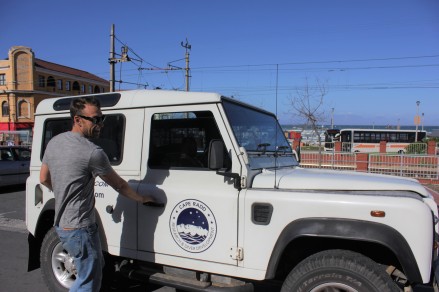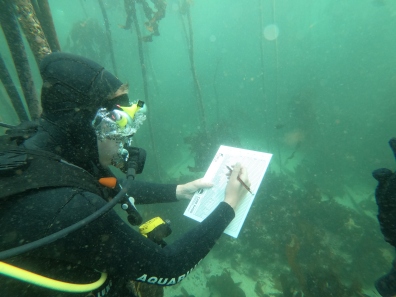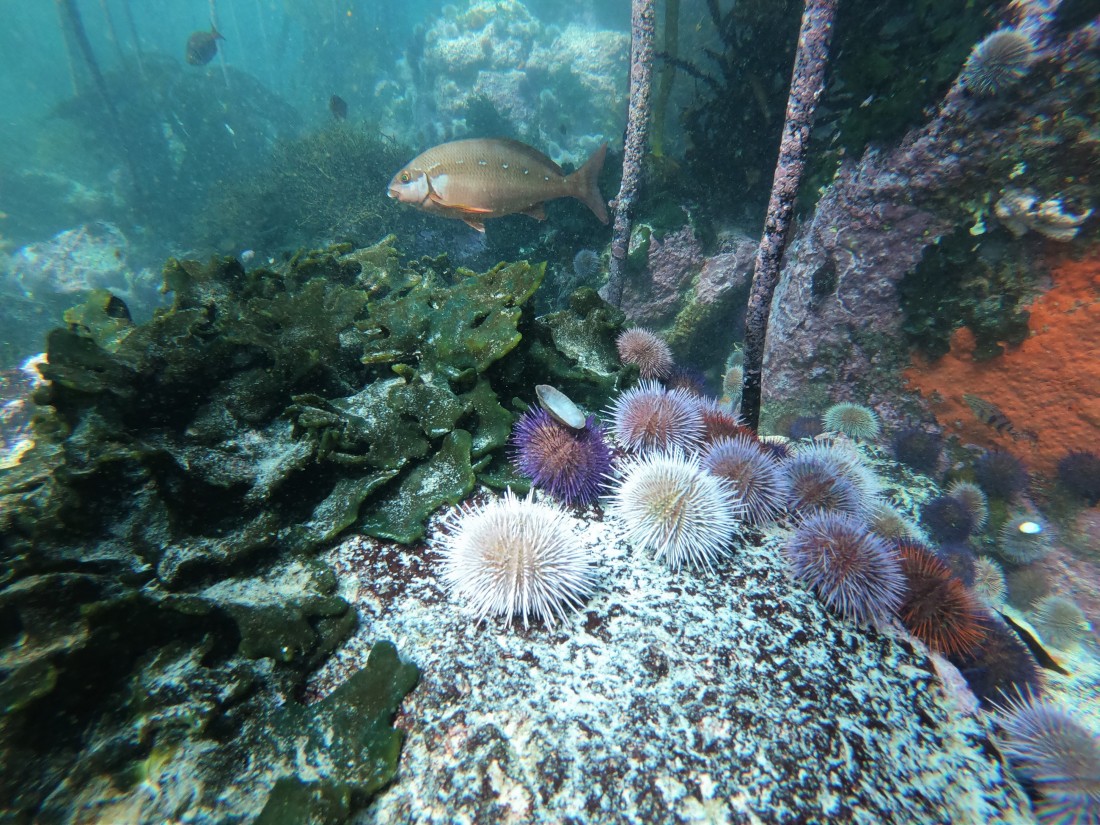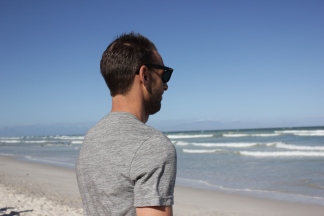A Manchester lad, Mike Barron, is busy conducting research projects and leading citizen science expeditions to help conserve Cape Town’s seas.

Image: Anna Cocks
Cape RADD (Research and Diver Development) is a one of those new companies in our economy that is radically working to support ocean conservation efforts. Their focus lies within two main pillars: the marine science scuba field course and citizen science projects. The field course equips new emerging marine biologists or professional scuba divers to accurately retrieve data and assist in Cape RADD’s research projects. My interest, however, lies in the Citizen Science Days Cape RADD runs. Being an ocean lover/conservationist but not a researcher this experience is perfect for the type of person like me – the average Mo.
Cape RADD offers Citizen Science expeditions where they take people, either snorkelling or scuba diving, to learn more about the ocean ecosystems on their doorsteps and more about the wildlife that breathes beneath our seas.
I first encountered this concept through the Underwater Club when they partnered with Mike to do a Citizen Science scuba dive. This involves one getting in the water with slates and pencils, swimming around kelp forests and identifying fish. I felt intimidated signing up…I’m an EGS (Environmental Science) major, what do I know about identifying fish…but I couldn’t pass up the opportunity to go for a dive.

Image: Anna Cocks
We arrived in Simon’s Town where we met Mike. Mike is one of those rad dudes with the Land Rover and many stories to tell about his travels. And he has traveled. He’s lived in England; studied zoology and conservation at Bangor University in North Whales; worked on Australia’s Great Barrier Reef and Ningaloo Reef, and obtained his Masters in Zoology from the University of Pretoria while working on shark deterrents in Mossel Bay. And now finally he resides in Simon’s Town along the beauty of the Cape Peninsula.
Upon arrival, we were directed to Cape RADD’s offices in the Pisces Divers centre where we were given a brief about the ocean ecosystem we would be swimming in. Mike also gave a brief history around the concept of Citizen Science.
Citizen Science has been around since the concept of ‘scientific research’ began. Jonathan Silvertown writes in his paper A new dawn for citizen science that along with Charles Darwin very few scientists were paid for their profession two centuries ago. He writes that Citizen Science was previously frowned upon by scientists because the public were believed to lack the skill to accurately collect data. However, in the last five to ten years the concept of citizen science has become quite popular. This is due to three reasons: firstly, the use of new technological instruments has meant more accurate data can be collected. Secondly, some scientists see citizens as a free labour force to bring in valuable research. Thirdly, research funders “impose upon every grant-holder to undertake project-related science outreach,” and what better way to achieve this than to involve the public in assisting you with your work.
With the history covered, we were educated on the type of fish we could typically expect to see and how we could identify them. Lastly were given our slates and pencils, and it was time to go beneath the surface.

Image: Francois van Schalkwyk
The conditions were perfect, the visibility was grand and suddenly my eyes were open to a whole new world. I’ve dived at Miller’s Point plenty of times but never had I seen it the way I did when we were swimming next to Mike and been shown all the fish, nudibranchs, shysharks and octopus. There were Red Romans, Galjoens and Pyjama Sharks. And the list simply continues. I was with many marine biologist students who knew the names of most of the fish they were identifying. So I mainly stuck with Mike and he was more than happy to help me place name to fish. I will say breathing underwater is an epic experience but being able to write underwater is surprisingly the most fantastical feeling. The thrill of writing under water was something I’ve never experienced before and yes I did play hang-man with my dive buddy.

Image: Anna Cocks
The dive came to the end and we re-assembled in the parking lot. We handed our slates to Mike who will release the data collected on the type and quantity of fish we’d seen that day onto many of their databases such as ELMO, iNaturalist, and EchinoMAP. This is then available for scientists to analyse and use for research purposes, mainly contributing to ocean conservation.

Image: Anna Cocks
I chatted to Mike on how he came up with this local expedition while we packed-up the gear. He expressed that with round about 20 people hopping into Cape Town’s waters each weekend for recreational scuba diving, he was curious to know why people shouldn’t get involved and learn more about ocean conservation instead of only putting dive gear on? He told me, “We wanted to blur those lines between recreation diving and scientific diving and make it more accessible to the masses.”
The aim of Cape RADD’s citizen science is to unite the community to get involved with understanding their oceans. This experience aims to develop oneself to engage with the threats of the ocean and contribute to finding a solution. It involves education in the hopes that society will change their ways of living and pressure those in power to change poor policies around ocean conservation.
Mike expresses, “Good news stories are out there but the threats are always there. It is basically like putting fires out.”
He continues to express how, locally, crayfish populations are declining and abalone poaching is a massive problem now. But overall the situation is getting better and as awareness becomes the order of the day, so does pressure get placed on authorities to improve policies. It is a continuous job but as Mike ends with saying, “I’m trying to stay positive.”
For more cool ocean blogs by Anna click on the button below!
0 Comments